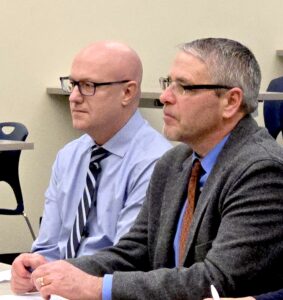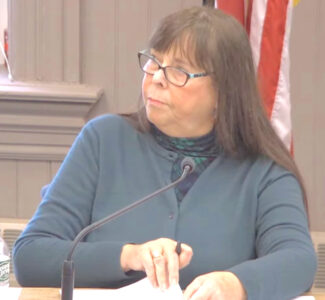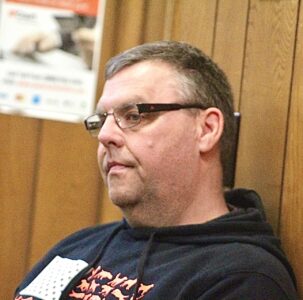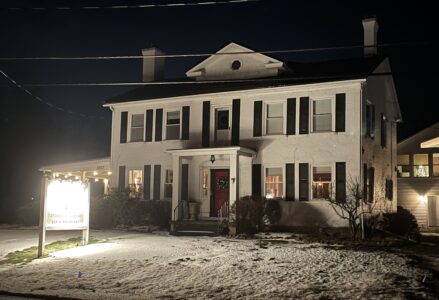Event brings healing for ‘pain and anger’

Submitted Photo Seneca Nation President Matthew Pagels spoke to a gathering in Irving last week.
In recognition of what has been years of tragedy, different members of the Seneca Nation came together last week to bring attention to a dark chapter in history.
The Seneca Nation joined many communities around the world, including Gowanda and Silver Creek School Districts, in observing Orange Shirt Day. The day is meant to recognize and remember anyone impacted by Indigenous residential schools.
The Seneca Nation members gathered on the campus of one such school, the Thomas Indian School, which operated for more than a century. The day included a healing walk and the unveiling of a new exhibit at the Sully Huff Heritage Center, which is there to highlight the impact residential schools had on these communities.
“For more than a century, residential schools across the United States and Canada forced Native children through their doors with the sole intention of having you walk out a completely different person. Not who you were at your core, but some version of a person they wanted you to be,” Seneca Nation President Matthew Pagels said to the crowd. “Language, culture, traditions – they were all part of you that had to be washed away like some sort of stain. It should have never happened, and must never be overlooked.”
Residential schools began in the 1800s and lasted well into the 1990s, with tens of thousands of Native American children being forced to attend these schools in the United States and Canada. Students at these schools were systemically stripped of their traditions and culture, with many being the victims of physical abuse. Thousands of children died at these schools and it’s believed that there were hundreds more deaths that went undocumented.
“For many of our ancestors and elders, many of our brothers and sisters across Indian Country,” Pagels said. “And many of you here today, the memories of school don’t carry joy, but pain and anger.”
This past June, the U.S. government announced the Federal Boarding School Initiative, which is an effort to review the lasting legacy of federal boarding school policies. Even with that on the table, the program doesn’t take into account schools such as the Thomas Indian Schools, which were operated by state governments or private or religious organizations. Pagels recently wrote to Secretary of the Interior Deb Haaland to request that three schools, including the Thomas Indian School, be added to that program.
“The impact these three schools had on our Seneca community has spanned generations and must be acknowledged and investigated,” President Pagels said. “As Native people, we know the history the world needs to know. We know the hate and the abuse and the terror that countless Native children faced at residential schools. If now is truly the time for truth and healing, all boarding schools, whether federal, state or private, must be examined.”
Outside of the gathering in the Cattaraugus Territory, there were events all over the place, including in Niagara Falls, with every event sharing the same message: “Every Child Matters.”
“We extend our arms and our hearts to the children, now grown, whose pain has been carried with them throughout their life. We raise our voice in honor of the children whose voices were silenced. And we dedicate ourselves to preparing the way for the children of today and the next seven generations to come,” Pagels said in concluding his remarks at the Cattaraugus event. “You all matter.”




